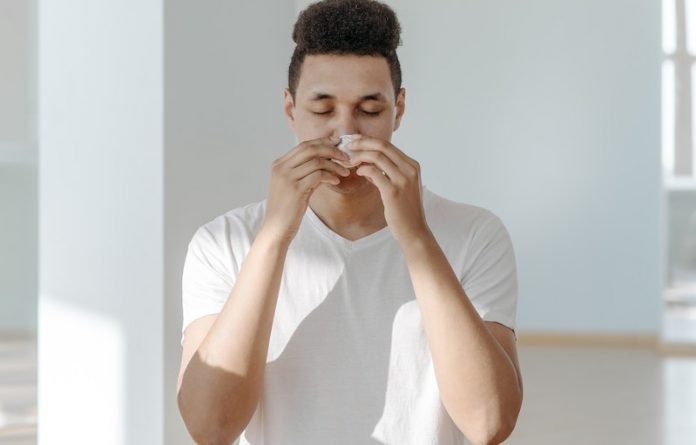
It may be the most baffling quirk of COVID: What manifests as minor, flu-like symptoms in some individuals spiral into severe disease, disability, and even death in others.
In a study from Rockefeller University, scientists may explain the genetic underpinnings of this dichotomy.
The researchers found that mice with gene variants previously linked to Alzheimer’s disease were at greater risk of dying when infected with COVID.
They also found patients with those same gene variants were more likely to have died of COVID throughout the pandemic.
Because three percent of the world population possesses these gene variants, the findings may have implications for hundreds of millions of individuals globally.
In previous work, the team studied a gene called APOE that plays a role in cancer metastasis.
As the pandemic progressed, the researchers began to wonder whether APOE variants might impact COVID outcomes, too.
They found that mice with APOE4 and APOE2 were more likely to die than those with the more common APOE3 allele.
This suggests a difference in just one or two amino acids in the APOE gene was sufficient to cause major differences in the survival of mice exhibiting COVID.
Mice with APOE2 and APOE4 also had more virus replicating in their lungs and more signs of inflammation and tissue damage.
At the cellular level, the researchers found that APOE3 appeared to reduce the amount of virus entering the cell, while animals with the other variants had less potent immune responses to the virus.
Taken together, these results suggest that the APOE genotype impacts COVID outcomes in two ways, by modulating the immune response and by preventing SARS-CoV-2 from infecting cells.
If you care about COVID, please read studies about the cause of inflammation and clotting in severe COVID-19, and this plant extract may help treat COVID-19.
For more information about COVID, please see recent studies about drug duo that may cure COVID-19, and results showing this existing drug can save damaged lungs in COVID-19.
The study was conducted by Sohail Tavazoie et al and published in Nature.
Copyright © 2022 Knowridge Science Report. All rights reserved.



